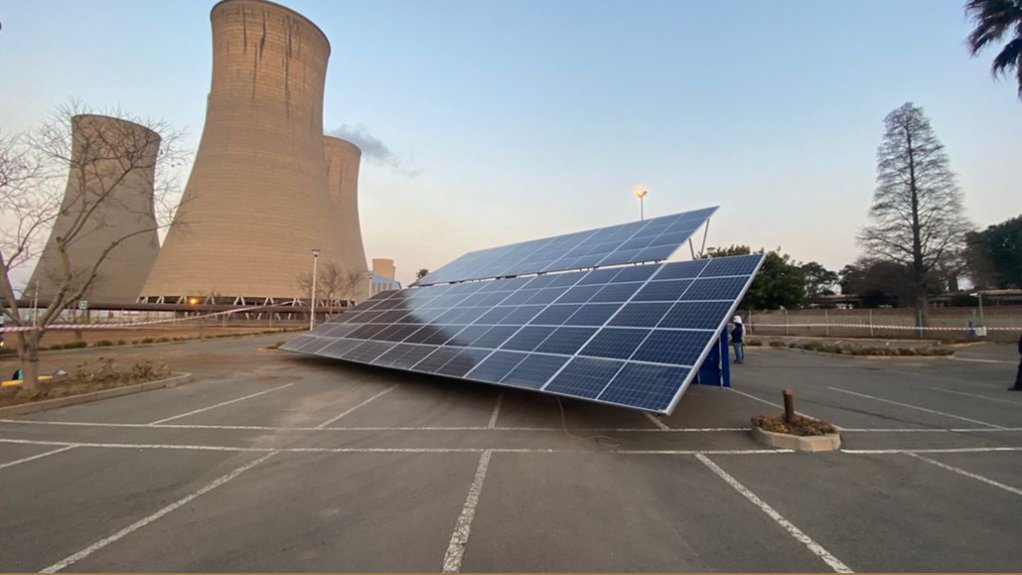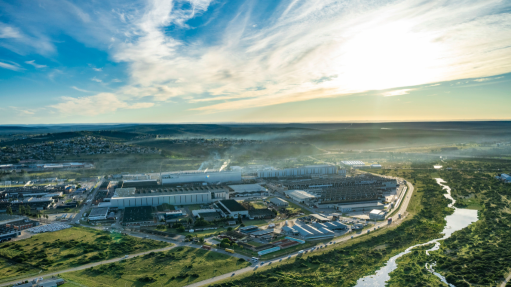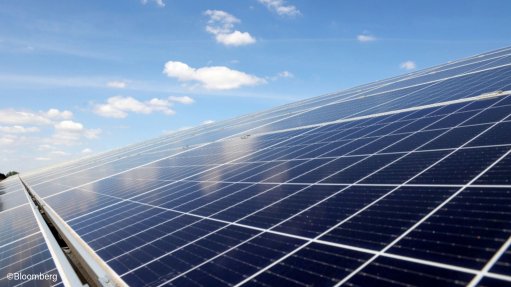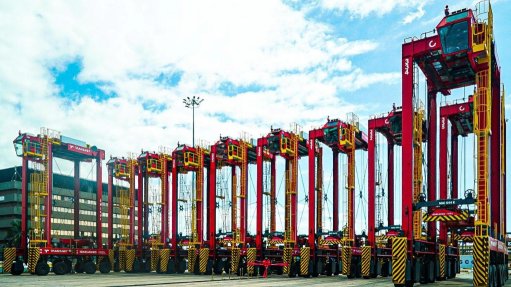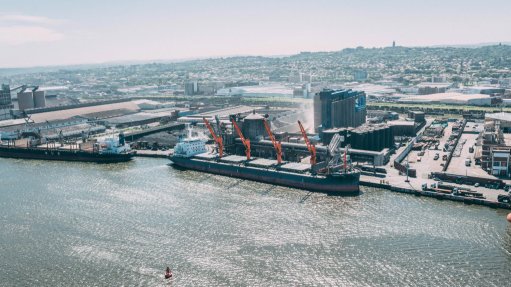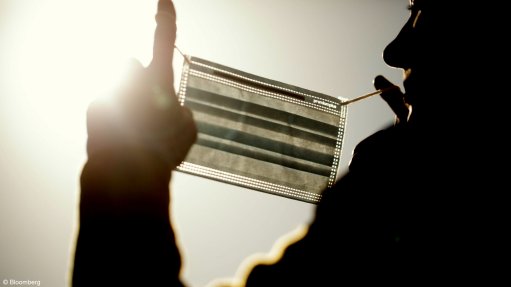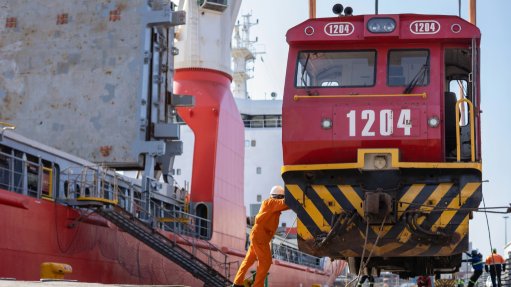Komati turnaround will cost close to R8bn, and the World Bank may foot most of the bill
Repurposing Eskom's coal-fired power station, Komati, would cost around R7.9-billion, project documents from the World Bank show.
Eskom has been engaging with the World Bank in providing funding for the re-powering and repurposing of Komati. The power station's first unit was commissioned in 1961, and it had nine operational units, each with a capacity of 100 MW. The last unit is to be decommissioned at the end of October. But Eskom has relied on multiple socioeconomic assessments to determine how to give the power station, situated in Mpumalanga, a second life so that it can continue to support the local economy and livelihoods of those in the affected region.
Komati is located in the Steve Tshwete municipality, and the coal value chain in the area contributes to 35% of the area's gross value. The area has a young population, and assessments have shown that those that would be most vulnerable if Komati were to shut down include farming communities, youth and women.
During a discussion hosted by the Presidential Climate Commission (PCC) on Tuesday, Eskom's senior consultant on climate change and sustainable development, Beauty Mazibuko, unpacked the funding requirements to re-power and repurpose the station.
In total, the funding requirements stand at around $490-million or R7.9-billion, Mazibuko said. The presentation to the PCC indicated discussions on the funding with the World Bank are at advanced stages. Mazibuko said that Eskom has engaged with the World Bank Group, which has developed a just energy transition project for Komati.
The proposed development objectives are to support the decommissioning of the station, repurpose the plant with renewables and also create opportunities for workers and communities.
Project documents dated 2 October 2022 on the World Bank's website indicate that the multilateral could potentially fund around $440-million for Komati's just transition. News24 has requested comment from Eskom to indicate whether the loan and the loan amount have been decided.
The project documents indicate that decommissioning Komati would cost about R480-million or $33-million. Recycling some materials like iron and steel could yield revenues of R160-million.
Repurposing Komati with cleaner energy sources, such as 150 MW of solar, 150 MW of battery storage and 70M W of wind, is estimated to cost about R6.5-billion ($410-million).
The plant will also include a micro-grid assembly line and agri-voltaic plant, which could contribute to job creation for surrounding communities.
A training facility in partnership with the Cape Peninsula University of Technology's South African Renewable Energy Technology Centre (Saretec) will be established at Komati. Eskom has secured $2.17-million or R38-million for the facility from the Global Energy Alliance for People and Planet. The grant funding will be used for the training centre, which will reskill workers at Komati and surrounding communities to participate in the renewable energy sector.
The remaining $47.5-million (R763-million) will be needed for opportunities for workers and communities.
Data from 2020 shows Eskom had 810 employees. Over a third or 276 of them were permanent – and are mostly under the age of 45, said Mazibuko. The skillsets include technicians, engineers and operators.
"Those skills are reusable in the clean energy value chain," said Mazibuko. These workers can be reskilled and upskilled to work in clean energy, she emphasised. Without any of the just transition interventions at Komati there would have been job losses.
More than half of the workers (430) work for Eskom Rotek Industries. These workers mainly do maintenance work and coal and ash handling, and can be transferred to other Eskom sites or operations.
About 303 workers are contractors, and Eskom can only retain 190 at Komati. Mazibuko said that alternatives for these contract workers are being considered.
Apart from partnering with the World Bank an Saretec, Eskom also has a memorandum of understanding in place with the Mpumalanga provincial government to collaborate on just transition and green economy projects – given that the province is heavily dependent on the coal value chain.
By 2030, the project at Komati will have created about 430 new permanent jobs and 7 700 temporary jobs through its decommissioning and construction. About 200 people are expected to be trained annually at the Komati Training Facility.
Comments
Press Office
Announcements
What's On
Subscribe to improve your user experience...
Option 1 (equivalent of R125 a month):
Receive a weekly copy of Creamer Media's Engineering News & Mining Weekly magazine
(print copy for those in South Africa and e-magazine for those outside of South Africa)
Receive daily email newsletters
Access to full search results
Access archive of magazine back copies
Access to Projects in Progress
Access to ONE Research Report of your choice in PDF format
Option 2 (equivalent of R375 a month):
All benefits from Option 1
PLUS
Access to Creamer Media's Research Channel Africa for ALL Research Reports, in PDF format, on various industrial and mining sectors
including Electricity; Water; Energy Transition; Hydrogen; Roads, Rail and Ports; Coal; Gold; Platinum; Battery Metals; etc.
Already a subscriber?
Forgotten your password?
Receive weekly copy of Creamer Media's Engineering News & Mining Weekly magazine (print copy for those in South Africa and e-magazine for those outside of South Africa)
➕
Recieve daily email newsletters
➕
Access to full search results
➕
Access archive of magazine back copies
➕
Access to Projects in Progress
➕
Access to ONE Research Report of your choice in PDF format
RESEARCH CHANNEL AFRICA
R4500 (equivalent of R375 a month)
SUBSCRIBEAll benefits from Option 1
➕
Access to Creamer Media's Research Channel Africa for ALL Research Reports on various industrial and mining sectors, in PDF format, including on:
Electricity
➕
Water
➕
Energy Transition
➕
Hydrogen
➕
Roads, Rail and Ports
➕
Coal
➕
Gold
➕
Platinum
➕
Battery Metals
➕
etc.
Receive all benefits from Option 1 or Option 2 delivered to numerous people at your company
➕
Multiple User names and Passwords for simultaneous log-ins
➕
Intranet integration access to all in your organisation



